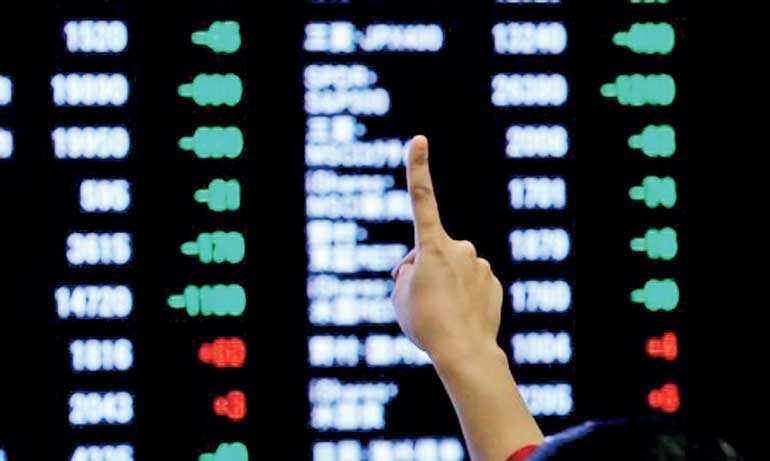Sunday Feb 22, 2026
Sunday Feb 22, 2026
Thursday, 24 January 2019 01:52 - - {{hitsCtrl.values.hits}}

TOKYO (Reuters): Asian stocks took a breather on Wednesday, with mounting signs of slowing global growth and concerns over a yet-unresolved Sino-US trade dispute putting the brakes on investor appetite for risk assets.
MSCI’s broadest index of Asia-Pacific shares outside Japan was mostly unchanged, stalling after climbing to a seven-week high on Monday.
The Shanghai Composite Index was last up 0.1%, having flitted in and out of the red.
Australian stocks were a shade lower and Japan’s Nikkei nudged up 0.2%.
On Wall Street, the S&P 500, the Nasdaq and the Dow all posted their biggest one-day%age drops since Jan. 3 on Tuesday.
Following a sharp drop in December, US shares gained through much of January, supported in part by expectations for a thaw in US-China trade tensions and a more dovish-sounding Federal Reserve. That also prompted global investors to plow into riskier assets.
But putting a dent on sentiment again was a report by the Financial Times that the Trump administration had rejected an offer from China for preparatory trade talks this week ahead of high-level negotiations scheduled for next week.
White House economic adviser Larry Kudlow denied the report, helping US equities pare some losses though the fresh concerns about US-China relations kept share prices in check.
Data published over the last 24 hours all pointed to a rough year ahead for the world economy.
US home sales tumbled 6.4% in December, falling short of the weakest forecast, to their lowest in three years. Compared with a year earlier, they were down more than 10% for the first time since 2011.
House price increases slowed sharply, adding to evidence of a further loss of momentum in the housing market.
Canadian factory sales and wholesale trade both slumped more than expected in November, while in Germany a survey by the ZEW research institute showed morale among German investors improved slightly in January, but their assessment of the economy’s current condition deteriorated to a four-year low.
Japan’s exports and imports also fell short of market expectations, with exports posting their biggest fall in more than two years.
As expected the Bank of Japan kept monetary policy easy and trimmed its inflation forecast on Wednesday with the domestic economy facing headwinds.